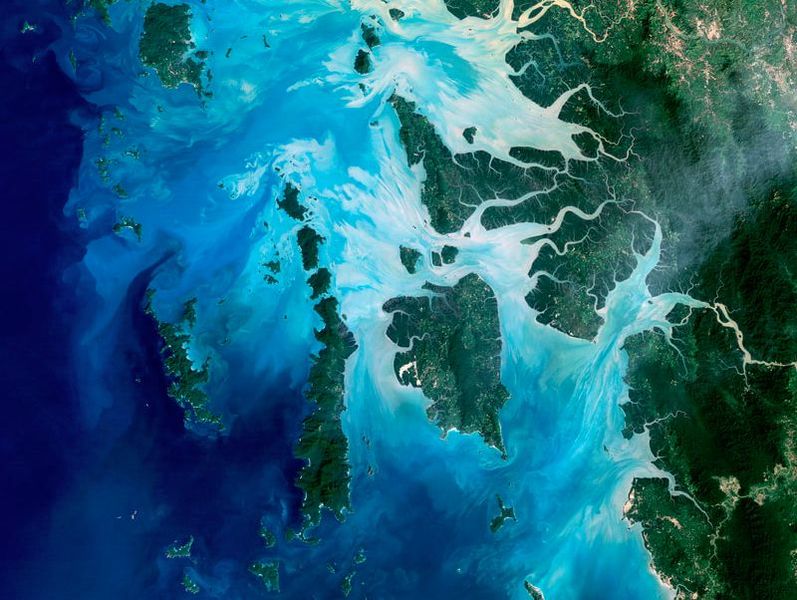The Starmus Festival recently turned the tech city of Trondheim upside down. A symposium of science, art and music addressed peoples’ curiosity of life and the universe. Key takeaways? In the short term, we need sustainability to support a comfortable life on Earth. In the long term, we might have to migrate to Mars...Thinking big is thinking sustainable
”When people ask me which planet is my favourite, I always say Earth. It’s a truly unique place in the universe, so we should take good care of it.” - Terry Virts, NASA astronaut and National Geographic photographer Climate disruptions presents a massive challenge, but also opportunities unseen before in the history of humanity. Is it possible to prioritise resources for both space exploration and safeguarding planet Earth? In response to this, the economists’ message was a challenge to the global finance community: could we change the current valuation methods to promote true sustainability covered by economic, social, environmental and governance perspectives simultaneously? Some nations have already started to measure successful development through the quantification of life quality, instead of traditional output, like Gross Domestic Product (GDP). Which business models will excel in fifty years if this becomes mainstream? Communication is critical Novel ways of communicating is one of the major strengths of Starmus. In addition to a broad public program and world-class speakers, the interactive format had the ability to inspire and explain phenomena through first-hand experiences. An example is the ClimArt Pollution Pod artwork, which provides domes of differing air quality from five cities around the worldwide. How does it feel to desperately want to leave Sao Paolo after five seconds because the air quality is comparable to a sauna full of diesel molecules and burned rubber? To barely see the exit in Beijing because of the thick smog? The immediate relief of returning to the rain rinsed freshness of Trondheim’s air is sharply contrasted by thoughts to the millions of people who are stuck in poverty and have no chance of escaping the pollution that blankets their everyday life. In all its urgency, air pollution’s effect on public health has become a major driver for addressing environmental and climate related issues. Migration to MarsTo survive as a species in the long term, a common perception among the speakers was that humanity needs to explore outer space and colonize new planets. Buzz Aldrin, Harrison Schmitt and Charlie Duke are three of the six living moonwalkers left on Earth. In a joint panel discussion, their view on the future of space travel resonated with Stephen Hawking’s powerful message. Hawking was the first person to explain the fate of the universe by uniting the general theory of relativity and quantum mechanics. Mr Hawking’s major concern was the future of humanity due to the immense pressure on planet Earth’s life supporting systems; physical resources being drained at alarming rates, deforestation and loss of biodiversity. However, establishing ecosystems in environments we know little about, on planets with no atmosphere, is an immense challenge. Civilization as we know it has the limited age of 6,000 years. With this humble existence in time, we are minions in the span of the 13.8 billion years believed to be the age of the universe. Comparing this time frame with Stephen Hawking’s forecast of interstellar travel within the coming 250 years to ensure the long-term survival of humanity, time is very limited. Short term survival could be acheived though fighting climate disruptions, and the stepwise colonization of space from the Moon to Mars to the nearest star, Proxima Centauri. Interdisciplinary collaborationStarmus inspires us to think the unthinkable and explore the edge of what is possible. The bigger the challenge, the higher demand for global unity and commitment of resources. Space ventures depend on international resource pools, as does disruptions of the climate and ecosystems. We are not merely passengers on the beautiful spaceship Earth, we are crewmates. Earth’s atmosphere is a thin protective layer that provides shelter from the lethal radiation and cold darkness of space. This protective layer needs to be balanced and is crucial for keeping our spaceship comfortable for humans and nature to maintain life supporting systems. Like the astronauts in outer space depend 100% on their companions’ competencies, we also rely on other nations experiences and abilities to create global solutions. Business and public-private partnerships will be a major force to drive the new era of space travel and sustainable development. The challenges are simply too big to be handled by single actors or nations, and resources too limited. The need for international collaboration is evident, and the frameworks are emerging. Starting with Earth’s planetary boundaries, the power of international collaboration efforts to reach the Paris Agreement and the UN’s Sustainable Development Goals has gained irreversible momentum. There is hope for a future of sustainable life on Earth and beyond. After all, there is no other option for a species of curious explorers. If you wish to see the Starmus speakers, you can get an overview of the sessions from the program and watch the complete recordings online.
2 Comments
David
14/1/2024 13:06:12
I appreciate the emphasis on creating a positive money mindset and overcoming limiting beliefs around wealth and abundance. It's a transformative perspective for making money. For more information, <a href="https://singingfiles.com/show.php?l=0&u=1931747&id=57411" target="_blank">click here</a>.
Reply
Leave a Reply. |
WANT TO PUBLISH AN ARTICLE HERE?
Have a read at our Publishing Guidelines: NEWSLETTER
Subscribe to our newsletter to get the sustainability articles sent to you every month. EDITOR
Lauren Guido |
|
Follow Us
Contact Us
|
Want to learn more? |


